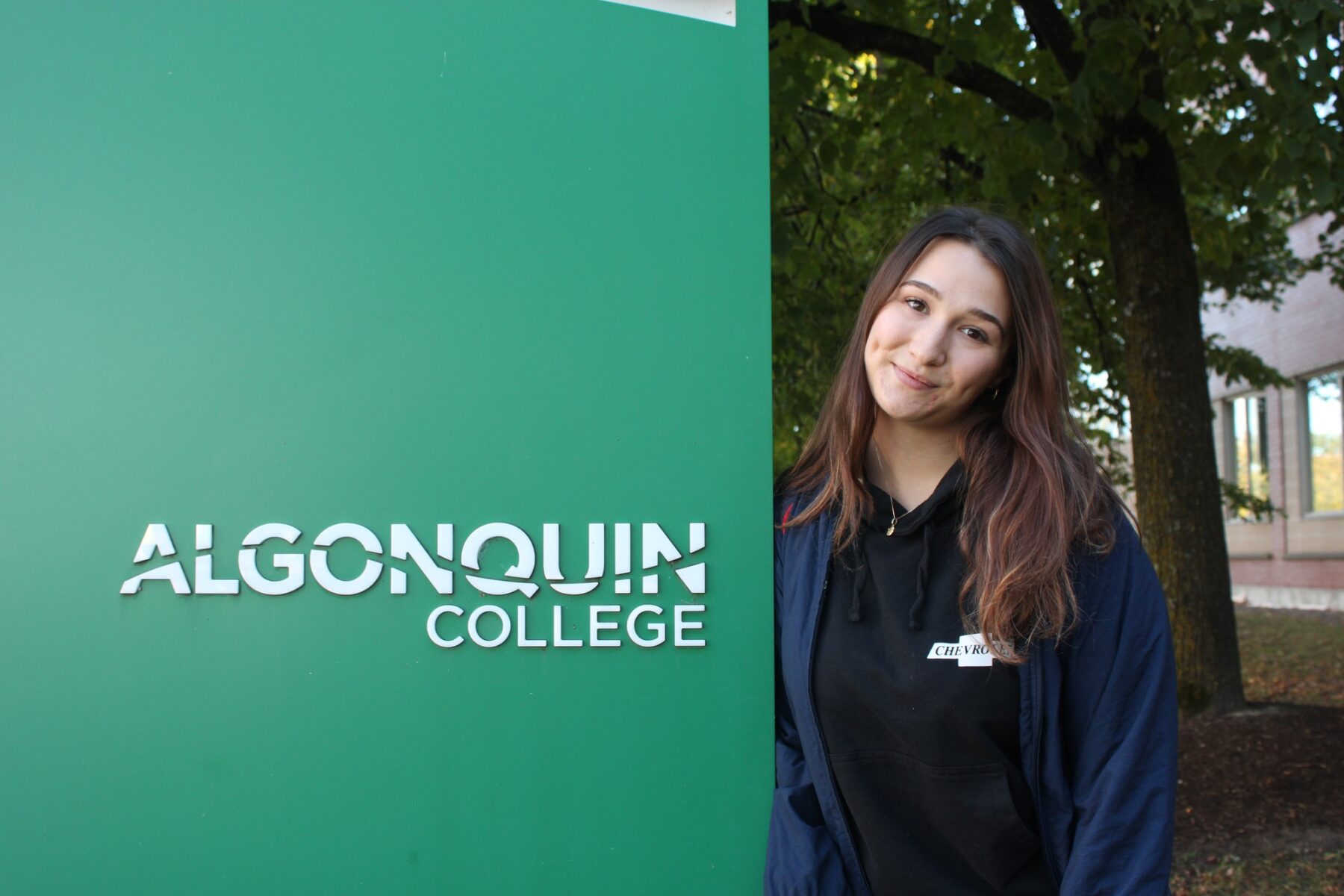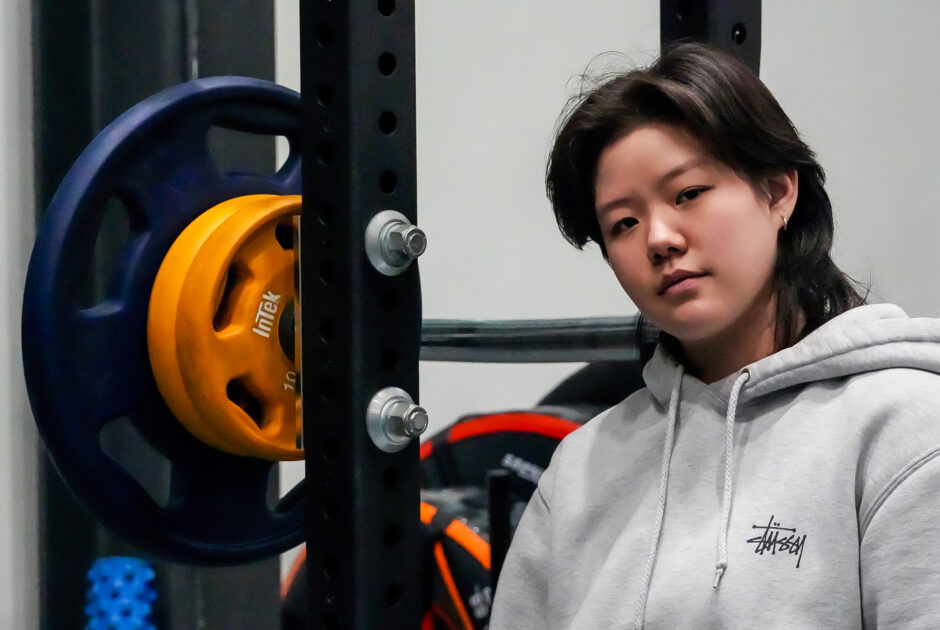First Person: College is for smart people too

Sitting in front of my colour-coded semester plan and my scattered notes, I’m trying to plan my course of action through all of my upcoming deadlines. Dates highlighted in red and terrifying to-do lists stare up at me from the pages of my agenda. I don’t know how I’ll be able to complete all of this.
Then, it hits me: college is just as hard – and just as valuable – as university.
If I had told my high school self that, however, she would have laughed in my face. Growing up, all I’d ever heard regarding the two post-secondary options is that university is the goal, and college is a back-up option. Yet here I am, enrolled in my third term at Algonquin College, with probably more school work than I’d ever had during my three years at university, and enough stress to share. But the difference is this time I have hope.
I always knew university would be the path I’d follow. In high school I got academic credits and I kept a good GPA. I even started emailing universities in grade nine because I was so anxious about making the right choice. Other options were never on the table. It would be high school graduation right into a four-year bachelor’s degree right into a career I would then work at for the rest of my life. My future was completely mapped out.
Like me, Adam Hassan, a human services foundations student at Algonquin College, shares a similar story.
“I went to university because, well, I thought that was just what I was supposed to do,” said Hassan. “I guess, I was just drawn to the prestige of studying at a nice institution.”
Students are confronted with the choice of university, college or trade school from the moment they walk off that eighth grade graduation stage. The decision must be made when building your class schedule: will you be taking academic or applied courses? If you had academic credits, you could attend college and university. If you had applied credits, you could only attend college.
With the idea that applied classes would limit my opportunities,They were never an option. This made me completely omit college as an educational path. If I did the work for the higher level, why would I go down to a lower one?
So, I attended the mandatory university seminars and ignored the voluntary college seminars that took time away from my sacred lunch period. I decided I was going to the University of Ottawa for a bachelor’s degree in communications.
Matthew McCooeye, a professor in the broadcasting-television program at Algonquin College, sees the influence of the pressures put on students graduating grade 12.
“High schools unquestionably lead people to university, and I believe that it doesn’t serve most of the people in the classrooms that they have,” McCooeye said. “High schools need to do a better job of making their students know that a college diploma is achievable.”
At university, I found myself in sitting in large lecture halls with 100 students and felt myself slowly turning into a number. The classes focused on theoretical knowledge and only tested my retention through exams worth 50 per cent of my grade and vague essays that will never again see the light of day once read by a TA.
With impersonal learning environments, and no real support anywhere to be found, I struggled to fully engage and ultimately failed my final year of my program.
It crushed me.
That year, I found myself at my lowest and a crippling fear of failure burned into my brain. I convinced myself I wasn’t smart enough, that the reason I was unable to excel, or even succeed in university, was because I wasn’t intelligent.
“A lot of the students come into our program thinking that they’re not good students because they’ve been told from kindergarten to grade 12 that they’re not,” said McCooeye. “I feel like high schools need to do a better job of building the confidence of their students as opposed to telling them what they can’t achieve.”
I sought out to switch to a college because I thought it would be easier, a better fit for my newfound academic incompetence. It’s odd to say, but I used to think of university as a place for smart people, and if you didn’t qualify as “smart enough,” you went to college instead. I had to go to the back-up plan.
Little did I know college isn’t easier, it just operates in a different way.
School has always been a hidden struggle for me. ADHD runs rampant in my brain which makes it considerably harder to stay on track. I relied on street smarts and many tear-filled nights to get me through my early school days. Those techniques, however, didn’t transition well into the type of learning environment at UOttawa.
I am now one semester away from graduating with my journalism diploma at Algonquin College. This time, my education is built to help me instead of built to test me.
Hassan has also found his feet at Algonquin College.
“It’s been wonderful,” Hassan said. “The amount of support that I get offered is great and as well as being able to access those supports are much easier.”
Small classes allow me to get the support I need to succeed, and the personal environment created by most professors made me see that my only failure in university was not being able to utilize my own learning style.
Feeling like just a number in a lecture hall of 300 people, Hassan also noticed the difference a more intimate class setting can make. “At university, I had such a hard time being able to really connect with my classmates,” he said.
I found university is aimed at a certain type of student. Someone who is very type A, who learns audibly, who is independent, driven and can excel in theoretical institutions like universities. But not every student is the same, and that’s where college comes in.
McCooeye said that college is built to support students and different learning abilities. “Students need to be more confident because [they] learn in a lot of different ways,” he said. “The college system affords us the ability to be a little bit nimble, too, with how we teach and the equipment that we use and that’s ultimately good for students.”
Applied learning can be for the smartest of students and simply getting good grades shouldn’t and doesn’t define which post-secondary institution (if any) you should go to.
I don’t regret my time at the University of Ottawa. It led me to become the person I am today and it led me to journalism at Algonquin College. I just can’t help thinking about how much money and time I could’ve saved if only college had a better PR team.








